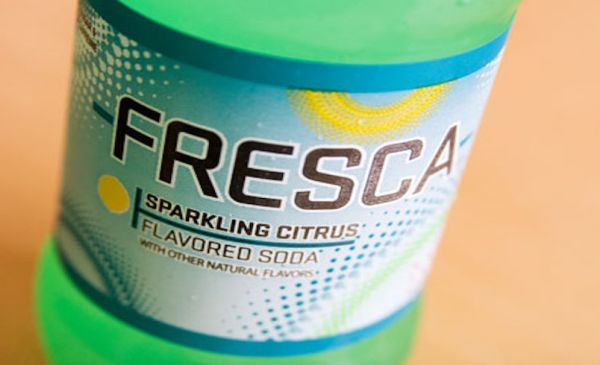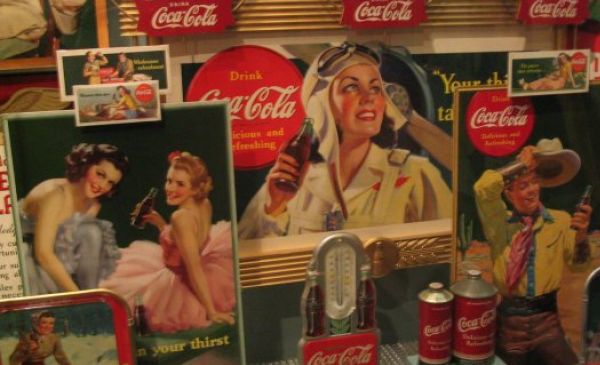I’m calling out British marketers today. They have a lot to learn about the importance of provenance, heritage and history.
May was undoubtedly marketing’s month for nostalgia. M&S ran triumphant three-day penny bazaars to honor its 125-year anniversary; meanwhile, Sainsbury’s out-heritaged its rival, with its 140-year celebrations capped by a beautiful ad from Abbott Mead Vickers BBDO.
In addition, Nestlé relaunched the Milky Bar Kid with a montage of half a century of uneasy blond, bespectacled children reading lines to camera. Persil and Virgin Atlantic also climbed onto the retro brand wagon with their own heritage campaigns. Meanwhile, Hovis announced this month that its ‘Go on lad’ campaign had grabbed a 3.5% increase in market share and added £60m to the top-line of the business.
This trend is surprising, given that one of British marketing’s biggest weaknesses is its Anglo-Saxon disregard for history and provenance.
It’s a deficit I have become familiar with as a consultant. I was trained in the US business-school model, which rejects focus on heritage in favor of consumer orientation. However, all that changed seven years ago when I started consulting for some of the great luxury brands. Personal discretion and an iron-clad non-disclosure agreement prevent me from identifying them, but trust me, they are great.
It took my new French masters more than a year to beat the historical reticence out of me and show me the power of using history to inform brand strategy. It might sound like merde de vache, but in the following years I have come to appreciate how right they are.
For example, I truly believe that Tesco is the leader in private-label because of its brand origins: in 1924, founder Jack Cohen marketed a shipment of tea he had bought from T E Stockwell using the first three initials of the supplier and the first two letters from his surname to brand the product.
Similarly, the reason Burberry can claim ‘accessible luxury’ so successfully is not its astute repositioning strategy in 1997, but rather its provenance: a brand created by a working-class draper from Basingstoke who made overcoats for the King.
An equally persuasive case can be made from the many brands that have forgotten their origins, to their cost.
If only General Motors had stopped trying to be so 21st-century and studied the actions of Alfred Sloan, its greatest past leader. Sloan set up the initial house of brands structure at GM in the 20s. He emphasized the need to position each brand in a specific market segment, and with total autonomy from the other brands in the portfolio. He also warned of the dire consequences for GM if these rules were ever forgotten – a lesson the company is now learning the hard way.
Similarly, if Northern Rock had stopped focusing on becoming ‘the most cost-efficient bank in Europe’ and paid attention to its thrifty Northern origins, it seems to me that it might have become apparent to it that its chosen path was not only fiscally irresponsible but at odds with the brand itself. A few hours in the company of Fuller Osborn, who led Northern Rock in its various forms from 1949, could have reminded the team of the bank’s roots.
Are British marketers finally breaking free of their Anglo-Saxon myopia and taking French lessons in brand heritage? I doubt it. Most of the heritage we saw last month was used superficially, for ads and events. To truly understand brand heritage and respect it is to use that knowledge at the very heart of every major brand decision. That may be a step too far backward for most British marketers to follow.
The Blake Project Can Help: The Brand Positioning Workshop
Branding Strategy Insider is a service of The Blake Project: A strategic brand consultancy specializing in Brand Research, Brand Strategy, Brand Growth and Brand Education





3 comments
Bhavana Jaiswal
June 4, 2009 at 2:39 am
Retro branding is a powerful tool that can be used to generate, or rather regenerate, loyalty for a brand. Brands that have a rich heritage can use their legacy to generate strong emotional connects about value/ performance in consumers minds. This is because whenever we as humans think about anything with nostalgia, we only think about the most positive things.
This strategy has been used by Cadbury’s in India. Some years ago, worms were discovered in some packs of Dairy Milk chocolates across the country. Cadbury’s used its age-old legacy with India, merged it with a campaign starring Amitabh Bachchan, by far the most popular Indian actor, and voila! they are back in business, and nobody in India thinks twice about buying the chocolate today.
Coke on the other hand, got caught in a case where pesticides were detected in the drink in India. While they have done good damage control and have managed to gain back their reputation; jokes about drinking Coke to cleanse your body of germs are still common in the country.
Ted Hurlbut
June 13, 2009 at 11:18 am
I would think most marketers would consider heritage-based branding as a risky proposition for most brands. My initial instinct is that such appeals would most resonate with older, more affluent demo’s, which can be worthwhile, but not the way you position yourself as current and relevant. Even the most well-established long-standing brands usually seek to stay out on the leading edge, seeking to draw in early-adopters and trend-setters.
C
April 23, 2018 at 2:54 pm
The idea that heritage matters is one that is rooted in wishful thinking, ignorance, and reluctance to change. Obviously this was written some time ago and now we have almost a decade of proof that brands in fact do not matter – their history even less so. How do we know this? A bevy of data that shows emerging brands chipping away at the biggest and most outdated (note: oldest) brands. Young consumers are far more likely to try new brands they have never heard of, including private label, and have less affinity for old brands. Their history doesn’t matter, loyalty is a thing of the past. You’re either relevant now or you’re not. Trying to maintain your position on old equity is a fool’s game and one that will eventually fail. As it should.
Comments are closed.